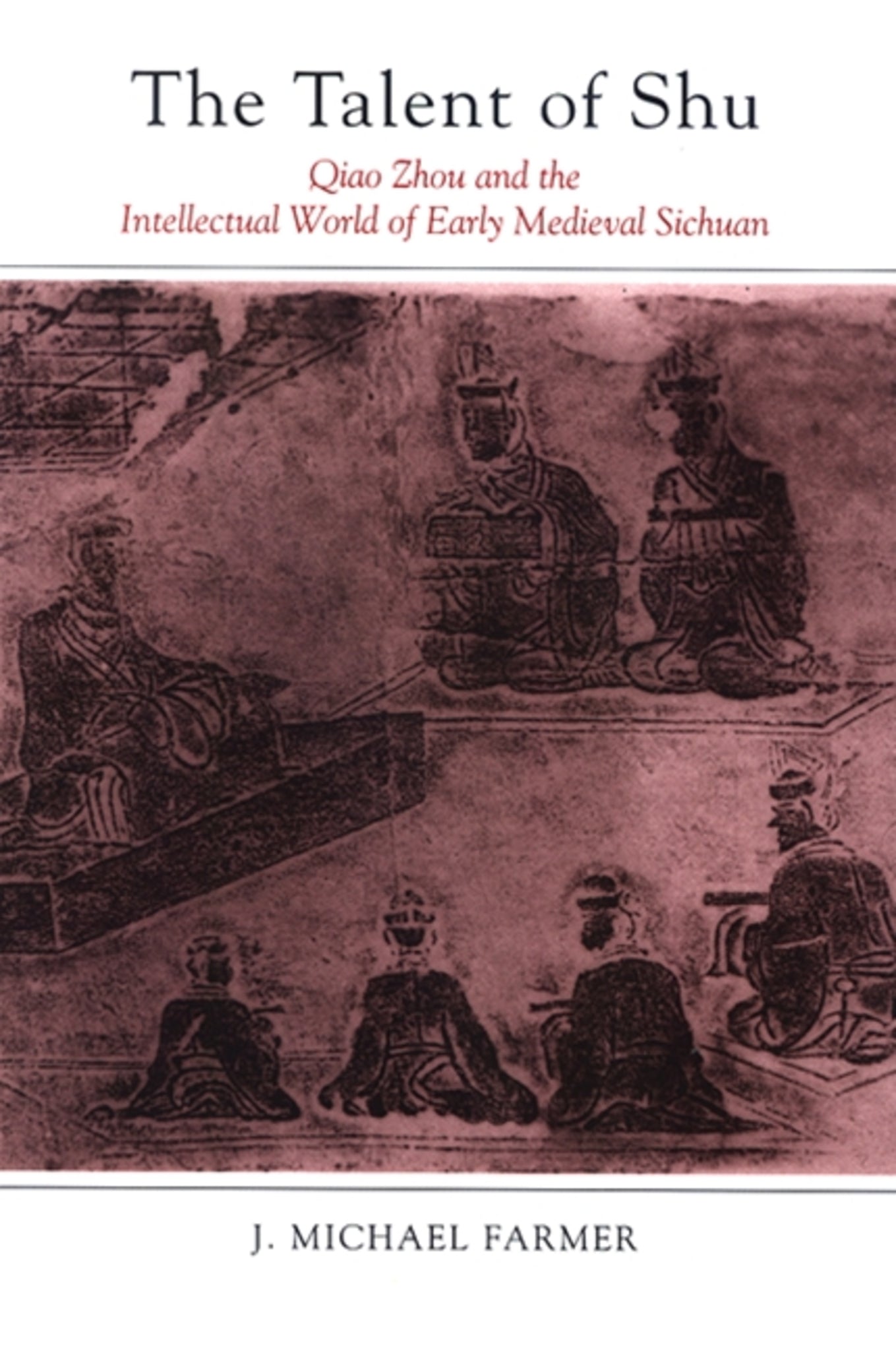We're sorry. An error has occurred
Please cancel or retry.
The Talent of Shu

Some error occured while loading the Quick View. Please close the Quick View and try reloading the page.
Couldn't load pickup availability
- Format:
-
05 June 2008

Presents the intellectual world of early medieval Sichuan through a critical biography of historian and classicist Qiao Zhou.
The Talent of Shu reconstructs the intellectual world of early medieval Sichuan through a critical biography of Qiao Zhou, a noted classicist, historian, and official of Shu-Han. Countering conceptions of Sichuan as an intellectual backwater, author J. Michael Farmer provides an analytical narrative history of the significant intellectual and scholarly activity in the region during the late second through third centuries CE.
Qiao Zhou stands as an apt figure to represent the intellectual world of third-century Sichuan. An heir to a long-standing regional intellectual tradition, he was trained in political prophesy, canonical studies, and ancient history, and in true Confucian fashion, employed these skills in the service of the state. While some of Qiao's scholarship, as well as his political engagement, was conservative, he also stands as an innovator in the fields of canonical and historical criticism and local history. As such, he embodies not only the scholarly tradition of Sichuan, but also the intellectual transitions of the age.


"With a detailed study of often fragmentary material, Farmer presents a new account of a neglected area of Chinese intellectual history and has reconstructed much of the work of Qiao Zhou and his contemporaries. It is an impressive contribution, and valuable to anyone concerned with the intellectual world of medieval China." — China Review International
"This book is crisply written, meticulously researched, and comprehensive. The author astutely draws material from a wide range of sources and threads them into a single, coherent narrative, along the way making reasonable connections and offering interesting conclusions." — Charles Holcombe, author of The Genesis of East Asia, 221 B.C.–A.D. 907
List of Illustrations
Preface
Terms and Conventions
Acknowledgments
Introduction
1. The Intellectual World of Early Sichuan
2. The Early Life of Qiao Zhou
"Civilizing" the Southwest: Intellectual Activity in the Former Han
Observing the Stars: Intellectual Activity in the Later Han
A Three States "Forest of Classicists": Intellectual Activity in Shu-Han
3. Scholarship and the State
The Qiao Family in Ba
Youth and Education
4. Critical Approaches to the Canon
The Founding of Shu-Han
Educating the Heir and the Province
Debates on Military Policy
The Fall of Shu-Han
5. Critical Approaches to Ancient History
The State of Canonical Studies
Discourse on Truth and Falsehoods in the Five Canonical Texts
Critique of the Ritual Canon The Influence of Qiao Zhou’s Canonical Criticism
6. New Approaches to Local History
The State of Historical Studies
Investigations of Ancient History
Critique of The Grand Scribe’s Records and Other Ancient Histories
The Influence of Qiao Zhou’s Historical Criticism
Epilogue
The State of Local Historiography
The Local Histories of Qiao Zhou
The Influence of Qiao Zhou’s Local Histories
Notes
Evaluating the Life of Qiao Zhou
Toward an Intellectual History of Third-Century China
Chronology: The Life of Qiao Zhou
Bibliography
Index



